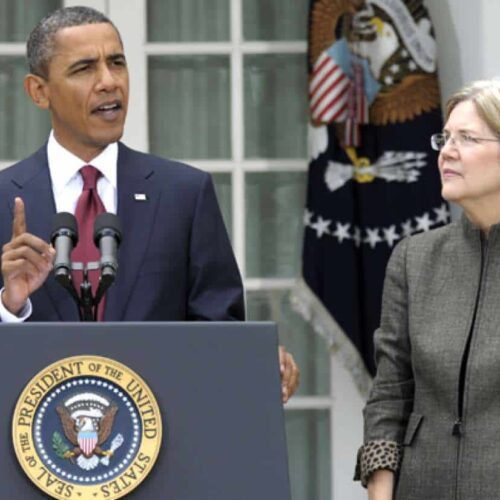Introduction
A daily round-up of news, commentary and analysis related to the Dodd-Frank financial reform law.
Warren aide as CFPB nominee? – President Barack Obama may nominate Raj Date, a former banker with Capital One Financial Corp. and Deutsche Bank AG, to head the Consumer Financial Protection Bureau, Bloomberg News and other media report.
Date has been a top deputy since February to Elizabeth Warren, the presidential advisor charged with setting up the CFPB. Some 44 Senate Republicans recently threatened to veto any nominee for the CFPB top job unless power is stripped from the new agency. Presidential nominees require 60 Senate votes to secure confirmation, which means Obama may have to resort to a recess appointment.
A Geithner critique – Treasury Secretary Tim Geithner is “simply wrong” in believing that tougher capital requirements aren’t needed for megabanks because of the Dodd-Frank law’s new bank resolution mechanism, writes economist Simon Johnson in the Baseline Scenario blog.
In a speech earlier this week, Geithner expressed faith that the Federal Deposit Insurance Corp’s new resolution powers can adequately handle the collapse of a megabank by imposing losses on creditors. But there is no cross-border resolution mechanism to handle the failure of an international bank like a Citigroup or Goldman Sachs, says Johnson, who was recently named to the FDIC’s resolution advisory panel.
A better approach: Force megabanks to run their operations in a segmented way with separate, higher capital requirements and no recourse to parent companies. Real estate trusts, which routinely hold 30 percent equity to fund their asssets, may be a model for megabanks, he says.
Bank capital requirements – U.S. regulators aim to increase banking capital standards by July, but disagree about how exactly much capital is necessary to protect against potential failure.
Sources told the Wall Street Journal that the Fed will likely support a buffer of 10 percent — a 3 percent increase over the 7 percent agreed upon last year by global policy makers in Basel. The Treasury Department is said to prefer a more modest increase of 2 to 2.5 percent. Last week, Fed Governor Daniel Tarullo suggested that banks should have to hold capital ranging as high as 14 percent of assets, depending on the amount of risk.
HAMP loan servicers face punishment – The Treasury Department will withhold payments to three of the nation’s largest mortgage services until they improve their performance in the Making Home Affordable Program, the Washington Post reports.
As the Obama administration’s main foreclosure prevention initiative, HAMP aids struggling borrowers by lowering monthly mortgage payments, but it has been criticized as being ineffective and too soft on participating mortgage servicers. Bank of America, JP Morgan Chase & Co., and Wells Fargo failed to meet HAMP requirements and must make “substantial improvements” before collecting HAMP funds again, the newspaper said.
Read more in Inequality, Opportunity and Poverty
State Integrity 2012
State Integrity Investigation highlighted ethics problems plaguing Virginia and its governor
Financial Reform Watch
New Jersey: Best score in the country
With a B+, the Garden State receives the highest score in the U.S., an 87

Join the conversation
Show Comments